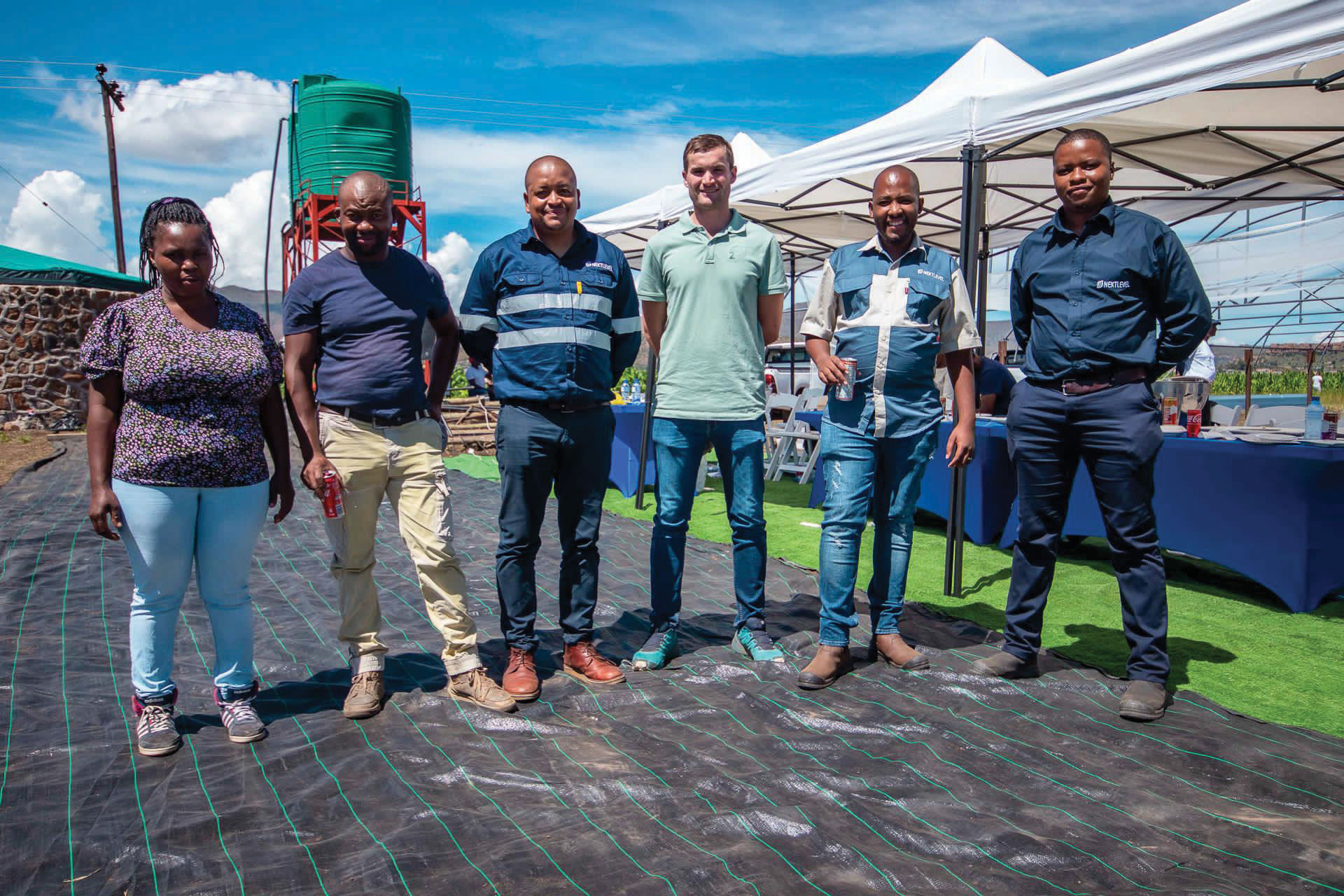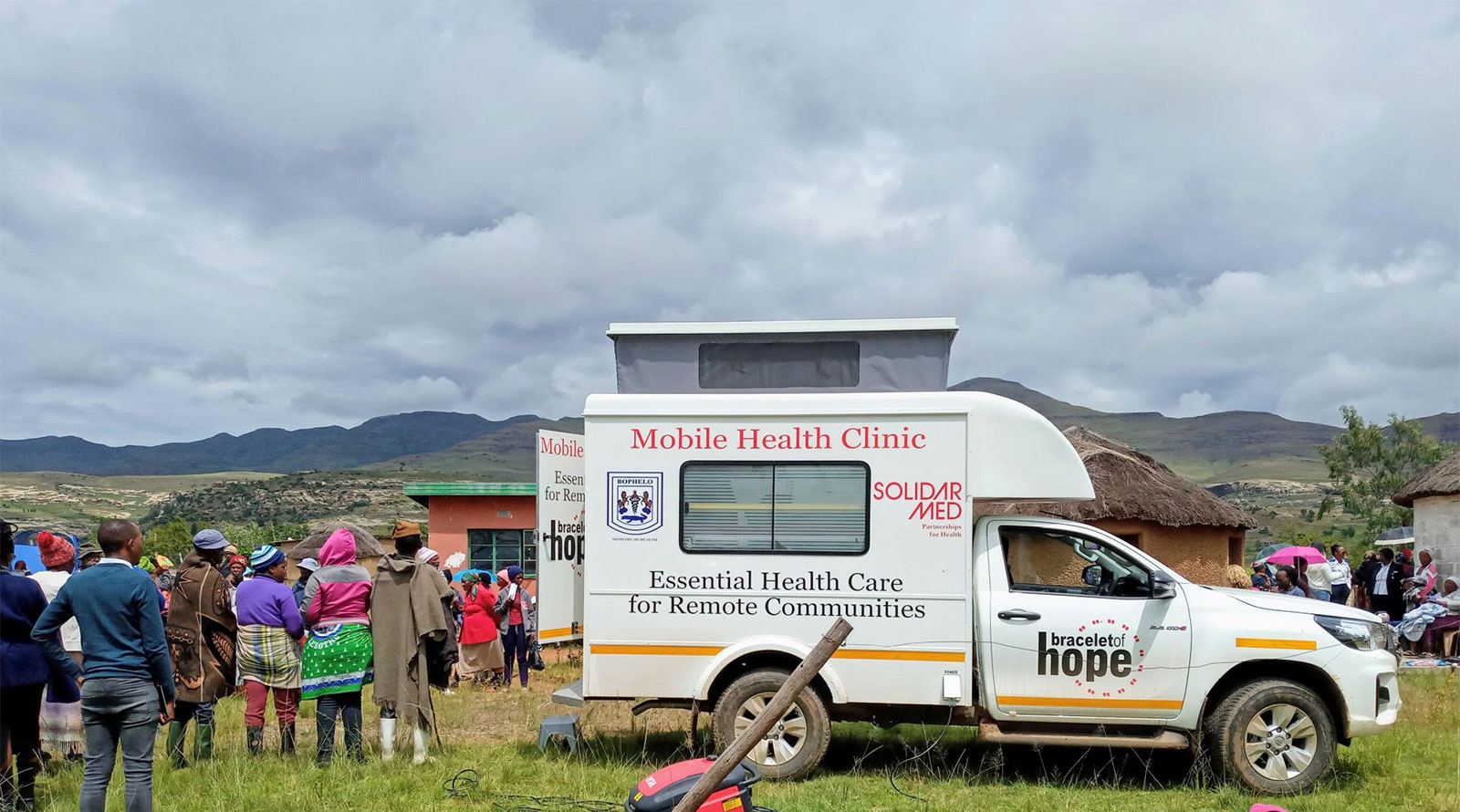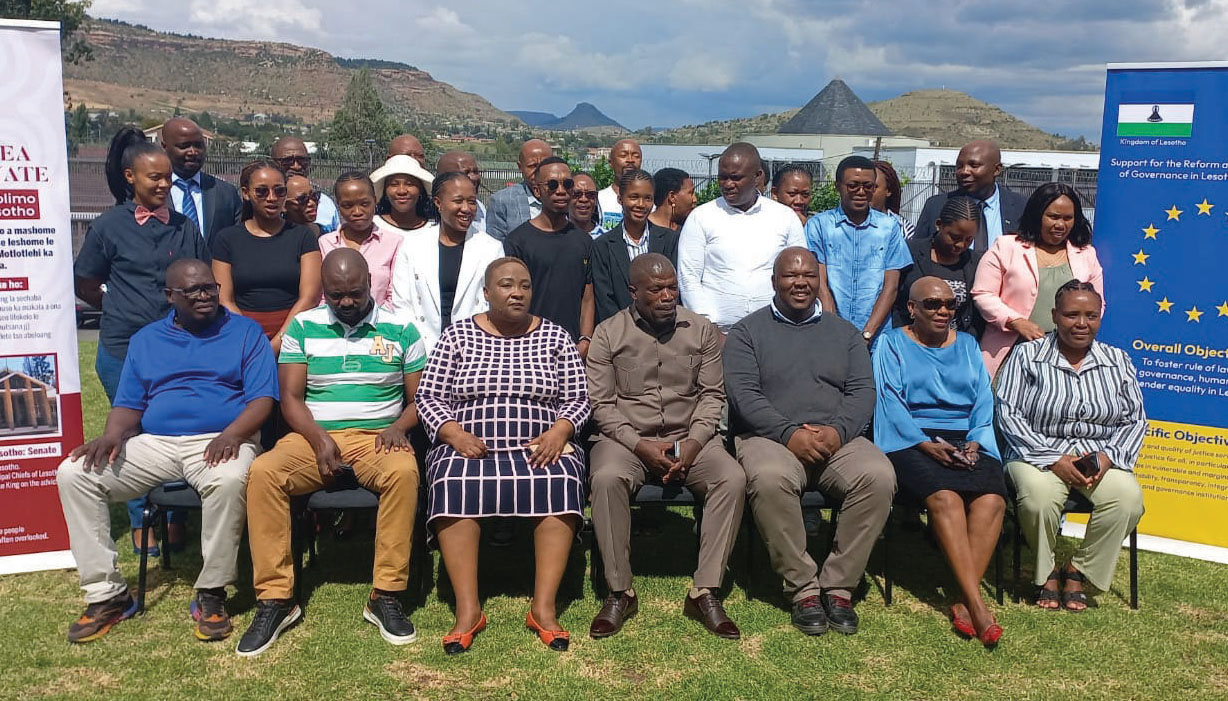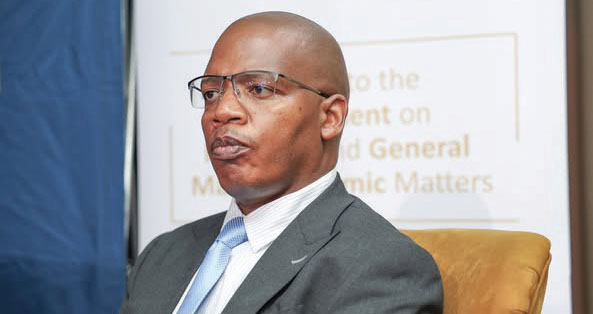Local firm breaks into Chinese dominated textile sector

SHARE THIS PAGE!
Maputsoe businessman, Neo Fekefeke is breaking new ground in Lesotho’s clothing industry with his apparel factory. This homegrown enterprise, which promises to bring high-quality, locally-made clothes to the market, represents a shift away from traditional Chinese-owned factories that have long dominated the industry in the country.
In this interview with theReporter’s ‘Mantšali Phakoana, the M and N Enterprise founder, speaks about his vision for the company and the challenges he has faced trying to enter a market dominated by foreign competition.
Lesotho’s industry landscape has long been dominated by Chinese companies, making it a difficult environment for local entrepreneurs to thrive. What inspired you to open a factory despite this?
It’s true that Chinese-owned businesses dominate the textile sector in Lesotho, but I saw this as a challenge rather than a deterrent. I was inspired by the need for local ownership and control of the industry.
Lesotho has a rich history in textile manufacturing, and I believe Basotho entrepreneurs should take a leading role in shaping the future of this sector. The goal was not only to enter the market with a unique and innovative product, but to demonstrate that a local company can compete and succeed against larger established competitors.
Before expanding into a full-scale industrial site, we were already into business for seven years in the textile industry, specialising in sewing and branding. During that time, we gained extensive experience in production, customer relations, and quality control. This foundation gave us the confidence to scale up and take our business to the next level.
One of the key factors that helped us expand was the Competitiveness and Financial Inclusion (CAFI) Project. Under CAFI, we were part of Cohort 2 and received training through Johanne Industrials, an enterprise support organisation (ESO). This six-month programme provided valuable insights into industrial production, business management, and financial planning.
Additionally, we have been fortunate to receive support from family, who have played a crucial role in helping us establish and grow the business. Their financial assistance, encouragement, and belief in our vision have been instrumental in overcoming many of the challenges we faced. Support from a big firm near us also provided extra guidance and insight into operating at an industrial level.
Can you tell us about your journey and the challenges that you encountered in establishing the factory?
The journey has been both exciting and challenging. We officially started setting up the factory in mid-December 2024 and officially opened on January 31, 2025. Our first major test came when we approached our first client, but unfortunately, we did not get the order. It was disappointing, but we took it as a learning experience. That setback pushed us to improve our quality, refine our production processes, and ensure that we met industry standards.
The lesson paid off because on February 26, 2025, we secured our first big order. This was a turning point for us, proving that persistence and a commitment to quality can turn setbacks into opportunities.
In just three months, we have invested well over R500,000 into this project. The costs have gone into acquiring industrial sewing machines, embroidery machines, boilers, and the overall setup of the factory. Day-to-day operations are also expensive, including wages, electricity, and materials. This is why access to financial support is so critical for businesses like ours.
With unemployment remaining high in the country, how do you envision this business contributing to this crucial aspect of the country’s development?
Unemployment is one of Lesotho’s biggest challenges, and I see M and N Enterprise as part of the solution. Our factory currently employs over 60 workers, most of whom are from the surrounding communities. As we scale up production, we aim to create even more jobs, providing stable income opportunities for Basotho.
Beyond direct employment, we are also fostering skills development. Many of our workers receive specialised training in industrial sewing and embroidery, giving them valuable expertise that they can use to build long-term careers in the textile industry.
What role do you think government policies and support can play in fostering a thriving local industry?
Government support is crucial in leveling the playing field for local businesses. We have witnessed firsthand that setting up a factory is not the biggest challenge -the real difficulty comes in acquiring enough machinery to produce different garments as fashion and uniform designs change. Most garments require different types of specialised machines, which are very expensive.
We also need a bigger facility to keep up with demand. Our current space is becoming too small to handle the large volume of orders we are receiving. A larger factory would allow us to:
• Improve efficiency by completing orders on time.
• Increase production capacity by adding more machines and workers.
• Enhance logistics by having enough space for parking, loading, and unloading finished goods and raw materials.
If the government provides more support in these areas, we can see more Basotho-owned factories thriving, reducing reliance on foreign manufacturers and creating a stronger local textile industry.
Looking forward, what do you see as the next steps for your business?
Expansion is our next step. We aim to increase production capacity, hire more employees, and move into a larger factory space. Our goal is to become a leader in Lesotho’s textile industry and set an example for locally owned businesses thriving in this space.
We also hope to strengthen partnerships with government institutions, large retailers, and schools to secure more long-term contracts. Additionally, we want to explore export opportunities within the region.
We are proving that Basotho can build successful industries within our own country. However, the challenges of funding, expensive machinery, and operational costs require strong government and private sector support. If we want to see sustainable growth in Lesotho’s textile industry, local businesses like ours need access to financial aid, bigger spaces, and reliable infrastructure.
With the right support, we can create more jobs, increase production, and even expand into international markets, making Lesotho a key player in the regional textile industry.

Farmers embrace new potato farming technology
16 hours ago
Mohale Dam case: cop testifies
17 hours ago
Rural healthcare crisis: a matter of human rights
20 hours ago

Nthabiseng Makebe inspires change
21 hours ago

Vodacom’s M-Pesa breaks network barriers
a day ago
Modest growth anticipated – CBL
a day ago
LeSwitch to make ATM transactions easier
24 days ago
WASCO targets water leakages in Maseru
24 days ago